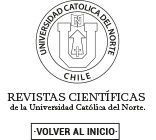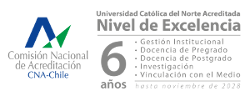Publishing Ethics
PUBLISHING ETHICS
The goal of PROYECCIONES is the provision of trusted knowledge to the widest possible audience. Our editors and staff subscribe to the principles of academic freedom, editorial Independence and research integrity. PROYECCIONES is committed to compliance with the COMMITTEE ON PUBLICATION ETHICS (COPE) guidelines.
This page details our policies on academic misconduct, plagiarism, duplicate publications, authorship and contributorship. Read about our Complaints and Appeals process, our Editor Code of Conduct, and our process for retracting a journal article. Please, ensure you read and adhere to these policies before submitting your article. PROYECCIONES takes seriously any form of misconduct or complaint of academic misconduct. We commit to taking all necessary actions, in accordance with COPE guidelines, to protect the integrity of scholarly record. We conduct investigations impartially and conficentially. Misconduct does not include honest error sor honest differences in interpretations or judgments of data.
PROCEDURES FOR HANDLING ACADEMIC MISCONDUCT
If concerns about academic misconduct in our published content are raised, our actions are guided by COPE recommendations. If we received any such correspondence, we would inform the autor(s) and editor(s) involved that concerns have been raised. Next, the Board of Editors support the journal editor in his(her) investigation. If there is evidence of misconduct, the journal editor considers issuing a correction, retraction, guided by COPE’s Retraction Guidelines. Please see the section on Corrections, Retractions and Removals.
TYPES OF MISCONDUCT:
PLAGIARISM: Can apply to all types of content and sources of material. If the content you submit, be that words, data, figures, images or other media, is not your own work, it needs to be fully acknowledged and attributed or it could be considered plagiarism. Use of any material from another source must always be cited and in some cases permission for use may be needed. COPE guidelines define plagiarism as: “When somebody presents the work of others (data, words or theories) as if they were his/her own and without proper acknowledgment.” PROYECCIONES does not tolerate plagiarism. PROYECCIONES uses the plagiarism detection software iThenticate to compare submissions. We will deal with cases of plagiarism according to COPE guidelines. Submissions that contain suspected plagiarism- will be rejected. If plagiarism is discovered once an article has been published, we will follow our guidance outlined in Procedures for handling academic misconduct and under the section Corrections, Retractions and Removals. If instances of alleged plagiarism are identified by our readers we would encourage them to contact the journal editor.
TEXT RECYCLING OR SELF-PLAGIARISM: While it is expected that authors build on previously published work, re-using large portions, either verbatim copying or paraphrasing without clear citation, is considered to be a form of plagiarism. If parts of your submission have been previously published, you must cite appropriately, and make this clear to the editor when submitting. You must also make sure that re-use of this content complies with any copyright policies that the work was published under.
MULTIPLE, REDUNDANT, OR CONCURRENT PUBLICATION: Duplicate submissions or duplicate publications refers to the practice of submitting the same study to two journals or publishing the same or similar study in two journals. You should not publish manuscripts describing essentially the same research in more than one journal or primary publication.
Redundant publication refers to one study being split into several parts and submitted to two or more journals. It could also mean that the findings have previously been published elsewhere without proper cross-referencing, permission, or justification.
This repackaging, in different words, of data already published by the same authors constitutes unethical publishing behavior and is unacceptable.
FALSIFICATION OR FABRICATION OF DATA: Data fabrication is the intentional misinterpretation of research results, reporting experiments that were never conducted, or the manipulation of accurate data to suit a desired outcome.
Image manipulation is a specific type of data manipulation and relates to duplication of parts within an image, or use of identical images to show different things.
Any form of data fabrication or falsification in not acceptable and will be treated as scientific misconduct.
CITATION MANIPULATION: Manipulative citation is characterised by behaviours intended to inflate citation counts for personal gain, such as: excessive self-citation of an authors’ own work, excessive citation to the journal publishing the citing article, and excessive citation between journals in a coordinated manner. [COPE https://publicationethics.org/citation-manipulation-discussion-document].
PEER REVIEW MANIPULATION: Manipulation of a peer review process is using dishonest or fraudulent practices to prevent or inappropriately influence the independent assessment of a piece of scholarly work by an independent peer, with the goal of influencing the publication record and/or achieving financial gain. In cases where there is a suspicion or allegation of peer review manipulation we will follow COPE guidelines.
AUTHORSHIP MISCONDUCT: Inappropriate attribution of authorship of a piece of scholarly work. This also involves authorship for sale papermills. Any cases of suspected authorship misconduct will be investigated and dealt with according to COPE guidelines. If any cases of misconduct are detected after publication, we will be guided by COPE recommendations.
APPEALS: We do welcome appeals; however we require compelling evidence or new information to consider an appeal in response to the editor’s or reviewers’ position. As an author, if you wish to appeal the decision of the journal editor, please take the following steps:
- Contact the journal editor in writing explaining clearly the reasons you disagree with the decision and specific evidence against comments provided by the editor(s) or reviewer(s), or highlight where you believe errors have been made
- Provide any new information or data that you would like the journal editor to consider
- The editor will consider one appeal per article and the decision following an appeal is final but the mere fact of an appeal being made should not affect the final decision.
COMPLAINTS ON EDITORIAL MANAGEMENT: If you have comments on the journal’s editorial management, please contact the editor of the journal.
- Editors should respond promptly to all complaints and will endeavour to resolve issues in a timely manner.
- In the first instance, PROYECCIONES will investigate any complaints raised.
- PROYECCIONES takes all complaints seriously be they made anonymously or not, and if you do make a complaint, we will treat you with professionalism and courtesy. In return, we would request the same respect for editors and PROYECCIONES staff.
AUTHORSHIP AND CONTRIBUTORSHIP:In PROYECCIONES to be listed as an author on an article an individual must meet the following criteria:
- Have made a significant contribution to the conception, design, execution, or interpretation of the reported study agreed on the journal to which the article will be submitted.
- It is the collective responsability of all those who have conducted the work to define who should be listed as a co-author, and who should be acknowledge in another way. All contributors, who participated in certain aspects of the research article, should be named in an acknowledge section.
CONFLICTS OF INTEREST AND COMPETING INTEREST: Are situations that are perceived to interfere with the objective presentation, review or publication of a piece of work. All authors, reviewers and editors must declare any existing competing interest. Competing interest could include:
- Personal connections between any of the authors and the editors or reviewers.
- Contractual or profesional commitments.
- Financial interest that would be affected by the publication.
- Grants received by the authros or institutions.
RESEARCH ETHICS: All research published by PROYECCIONES must have been conducted in adherence with the highest international and local standars of rigor and integrity.
EDITOR CODE OF CONDUCT EDITORIAL POLICY: An Editor, or editorial team, leads every journal. Editors have responsability for the quality and ethical standards of every published article. Editors, Guest Editors, and editorial board share responsability for ensuring the articles that they approve are of quality. It is a requirement for editors and supporting editors to follow COPE guidelines.
CORRECTIONS, RETRACTIONS AND REMOVALS: If there are concerns raised about a published article in PROYECCIONES, we will follow the process outlined under “Allegations of Misconduct”. Editors will consider corrections, retractions and amendments in accordance with COPE’s Retractions Guidelines. If an error is founded in a published article, we will use an erratum or corrigendum. Retractions are reserved for articles that are so seriously flawed that their findings or conclusions should not be relied upon, also for the inclusión of materials without permission for use, copyright infringement and undisclosed conflict of interest.
In exceptional cases, Proyecciones may remove an online published article. This includes, without limitation, where we have concerns that the article: is defamatory, violates personal privacy, or confidentiality laws, is the subject of a court order, might pose a serious health risk to the public. In these circumstances, we may decide to remove an article and publish a notice that clearly states why the full article was removed.
Important part of this document was taken from Special Matrices, De Gruyter.









